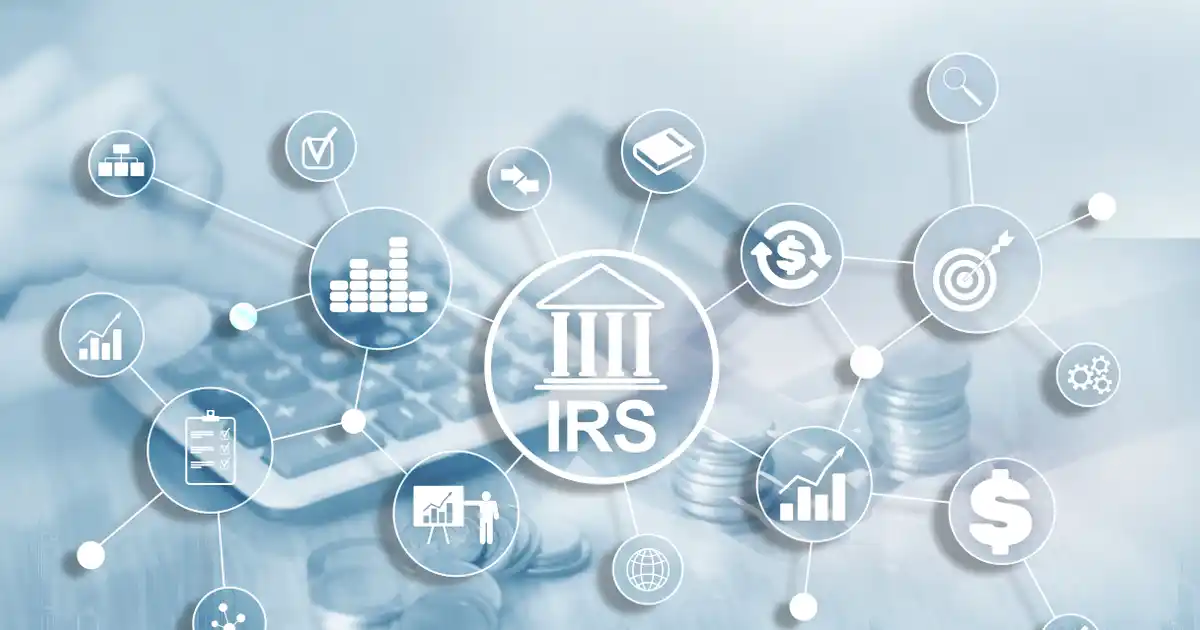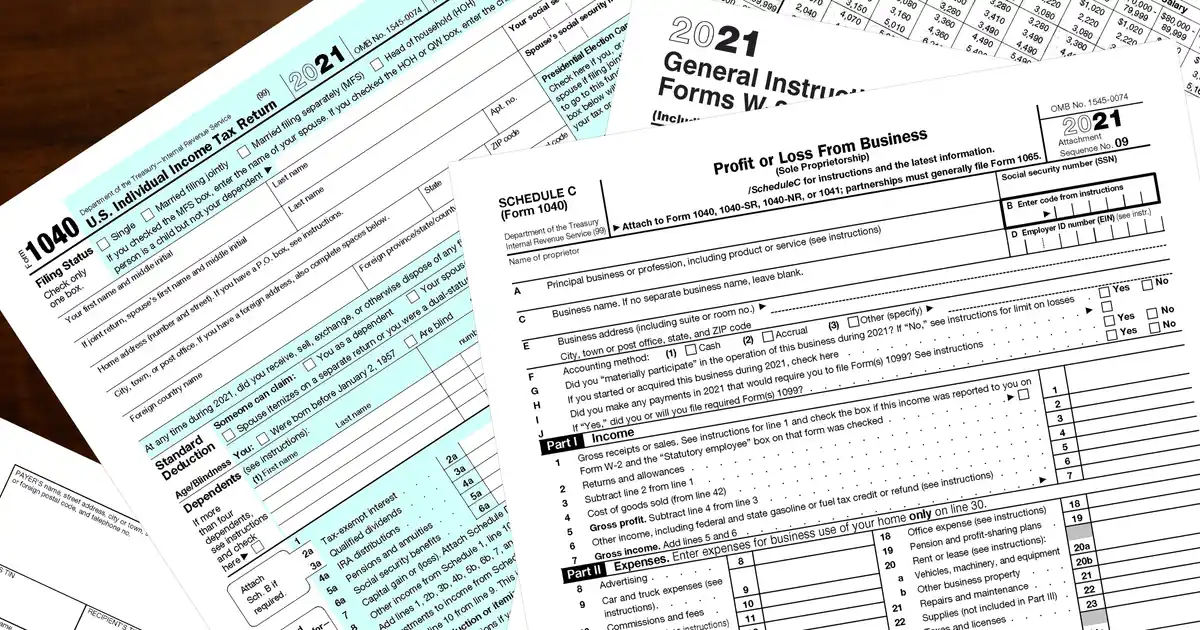The Internal Revenue Service can be a complex labyrinth of red tape and bureaucracy. Even the most experienced accountants can sometimes struggle to get things done in a timely fashion. On the other hand, having any sort of outstanding tax issue can be both stressful and costly. So you absolutely need to make sure you get any questions answered and those lingering loose ends tied up quickly. Here’s a dozen of the most commonly asked questions when it comes to the IRS — and the answers that go with them.
How Do I Contact the IRS?
You can contact an IRS customer service representative for any questions or queries related to individual taxes by calling 800-829-1040 or 800-829-4933 for business accounts. Call the customer service representatives from Monday through Friday from 7 a.m. to 7 p.m.
How Do I Create an Account on IRS2Go?
Download the IRS2Go app from the Apple App Store, Google Play Store, or Amazon.
To use the app for the first time, you must first verify your identity by providing your email address, SSN or ITIN, tax filing status, mailing address, one financial account, and a mobile phone associated with your name. This process takes about 15 minutes.
You can use IRS2Go to generate a security code each time you log in to your account. This adds an extra layer of security to prevent unauthorized access to your IRS account. Use IRS2Go to:
- Check your refunds;
- Make a payment;
- Sign up for free tax tips, and;
- Follow the latest news from IRS.
What Can I Do If the IRS Has Filed a Lien Against Me?
If there is a lien filed against you, you should follow these steps:
- Request a copy of the tax lien and check the period when the IRS claims you have a delinquent tax debt.
- Call the IRS Centralized Lien Unit at 800-913-6050 to get more information on the federal tax lien.
- Check the tax filings for the period in question to ensure they are free of any errors.
- If you’ve identified errors in your tax returns, file an amended return to correct the errors.
- If the tax debt is valid or there are penalties for late filing or payment, you should pay the full amount you owe right away.
I Can’t Pay the IRS Taxes I Owe. What Are My Options?
If you can’t pay IRS taxes, you should still submit your tax return before the deadline to avoid penalties and interests. You can also reach out to the IRS agents via 800-829-1040 to discuss your payment options.
Some of the options for taxpayers who can’t pay taxes owed include:
- Short-Term Extension: The IRS may allow you sometime to pay off the tax debt, usually up to 120 days.
- Installment Agreement: You can opt to make installment payments over a period of several months until you pay off the tax debt. There is a $149 fee for installment agreements, which is discounted to $31 if you opt-in for direct debit.
- Offer in Compromise: If the IRS agrees, you can opt to settle the tax bill for less than the amount owed. Check if you qualify for this option on the IRS’s website.
- Temporary Suspension of Collection: If you are financially strained, you can request a temporary delay in collection until you are able to pay off the debt.
 Shutterstock
ShutterstockAm I Liable for Taxes Which My Spouse Owes from Before We Married?
If your spouse owed back taxes from before you married, you are not legally responsible for payment of these debts. The spouse is solely responsible for paying the debts owed.
If the IRS intercepts your tax refunds to cover your spouse’s back taxes, you qualify for “injured spouse” status. This allows you to get back your part of the refund that was intercepted.
How Can I Prepare for an IRS Audit?
If you have received an audit notification from the IRS or state, you may be required to mail the specific tax or business records. Another option is to call the IRS and schedule an appointment with the local IRS office, in your home, or place of business. Start by organizing your tax records by year, type of income, and expenses. Also, make sure to include a summary of your transactions.
If you agree with the tax audit, you should send reply forms included in the notice or make required payments to the IRS. However, if you disagree with the audit, you should respond to the audit by explaining why you don’t agree and provide documents and information you want the IRS to consider. After providing the required information, allow at least 30 days to get a response from the IRS.
The IRS Has Issued a Levy Against My Property. What Are My Options?
If the IRS has issued a levy against your home, vehicle, or other property, you should read the notice carefully to know what is required and the time frames allowed. Usually, the IRS sends several notices before seizing your assets. If the notice reads “Final Notice of Intent to Levy and Notice of Your Right to Appeal”, it means that the IRS has the authority to seize your assets.
When you receive the final notice, you should contact the IRS right away by calling the number indicated on the notice to file an appeal. Individual taxpayers may contact the IRS at 800-829-1040, while businesses can call the IRS at 800-829-4933.
By filing an appeal, the file is taken from the Collections Division to the Appeals Division. This prevents the IRS from levying your assets. The appeal can take several months, which you can use this time to resolve your situation.
Some of the ways you can resolve your tax liability include:
- Full payment;
- Partial payment;
- File currently not collectible status;
- Offer-in-compromise, and;
- Elimination of tax debt.
To complete the appeal, talk to the IRS to arrange your payment plan and request a levy release. A levy is released when you pay off your tax debt or set up an installment agreement. A levy can also be released when the collection period ended prior to the levy issue or if the levy causes an economic strain on the taxpayer.
 Shutterstock
ShutterstockWhere Does the IRS Get My Bank Information?
The IRS can get your bank information from various sources. These sources include:
- Filed returns;
- Information statements under your Social Security number;
- Data from third parties, such as Veteran Affairs, Social Security Administration, or the Railroad Retirement Board, and;
- Federal records from payments to or from the government.
Can I Change My Bank Account Information with the IRS?
Once you have filed your tax return, you won’t be able to update or change the bank account information and routing number for tax refunds without directly contacting the IRS. If you want to update the bank account information or routing number, you should call the IRS at 800-829-1040.
If the IRS is unable to direct deposit your refund, it will mail a refund check to your address.
My Address Has Changed. What Can I Do to Change It?
If your address has changed, use one of these methods to let the IRS know your address has changed:
- Tax Return: If your address changes before filing your annual tax return, you should enter the new address when filing your tax return. The IRS will then update its records when processing your tax return to reflect the new address.
- IRS Form: You can also change your address by completing Form 8822 for individuals or Form 8822-b for businesses. Send the completed form to the address listed on the tax form.
- Oral Notification: You can ask IRS to change your address in person or by telephone. The IRS may require you provide certain information to verify your identity. Some of the information required for verification include your full name, old and new address, date of birth, and Social Security number.
- Written Statement: You can write to the IRS, informing them that your address is changing. In the statement, you should provide your full name, Social Security number, ITIN or EIN, the old address, the new address, and your signature.
If you are joint filers, you should provide information and signatures of both spouses. If you are separated and with separate addresses, each taxpayer should send a statement with their new, separate address.
 Shutterstock
ShutterstockHow Do I Get a Copy of My Previously Filed Tax Return?
If you need a copy of your tax return, you can request one by preparing Form 4506 and paying $50 (via check or money order) per copy of tax return. Mail the tax form to the address listed on the form.
After receiving the tax form, the IRS will start processing your request. You should get the requested copies of your tax return in 75 days.
What Can I Do If I Believe I Do Not Owe the Amount the IRS States I Owe?
If you believe there is an error in the IRS tax bill or notice, you should mail the IRS before the tax filing deadline. You should provide copies of records and documents to back-up your statement. You can also call the IRS via the number provided on the notice to discuss the tax debt. If the records prove there is an error, the IRS will make the necessary changes and send an adjusted notice.
If you believe you owe less than what the IRS says you owe, you can submit an offer in compromise (Form 656-L). Use this form to request the IRS to accept less than the tax bill in one lump sum payment.
How Do I Qualify for EITC or Other Tax Credits?
You may qualify to get EITC if you have a low-to-moderate income and qualifying children. You may be eligible for this tax credit depending on your income, filing status, and family size.
To qualify for EITC, taxpayers must meet these requirements:
- Claim a filing status.
- A U.S. citizen or resident alien.
- Have a valid Social Security number.
- Have investment income under $3,650 in the tax year.
- Proof of earned income from wages, business, or farm.
What Should I Do If I Cannot Pay the Amount Owed to the IRS for Back Taxes?
If you are unable to pay the entire amount owed to the IRS in back taxes, you should still file tax returns within the required timeframe. If you don’t file a return, you may incur penalties and interests on the tax debt.
You can also talk to an IRS agent via 800-828-1040 to know your payment options. The IRS may provide some options, such as:
- A short-term extension of up to 120 days;
- An installment agreement of up to 72 months if you owe not more than $50,000;
- An offer in compromise, or;
- Reporting your account as currently not collectible to delay collections.
 Shutterstock
ShutterstockDoes IRS Forgive Your Debt After 10 Years?
The 10-year statute of limitations allows the IRS up to 10 years to collect unpaid tax debts or liens from the date they were assessed. Once 10 years lapse, the tax debt is written off from the IRS books.
In some cases, the IRS may enforce collections even after the 10-year lapse. One of these cases is when the tax debt is suspended due to filing of bankruptcy, appeals of collection processes, or innocent spouse claim. When the suspension is lifted, the time is added back to the collection statute.
Also, if the IRS refiles the tax liens, it is considered as a continuation of the initial lien.








